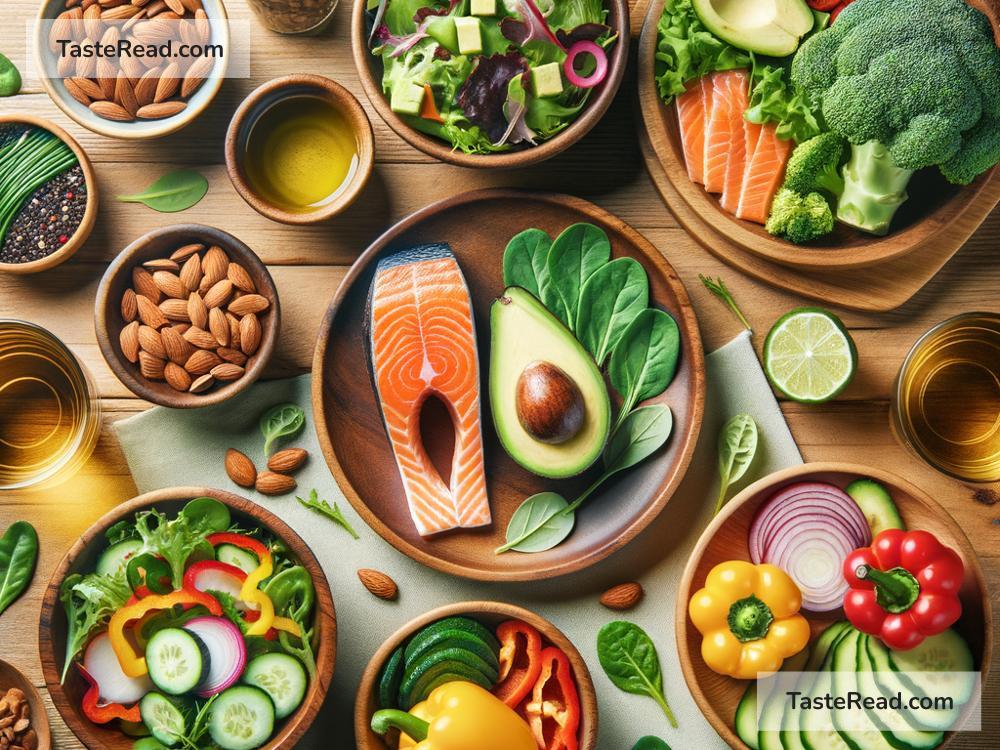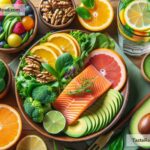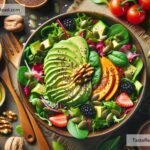Foods that Reduce the Risk of Hormonal Acne
Hormonal acne is a frustrating and common skin condition that affects people of all ages, especially teenagers and young adults. It’s triggered by imbalances in hormones, such as increased levels of androgen, which lead to excess oil production and clogged pores. While skincare products can help manage acne externally, what we eat plays a big role in controlling hormonal acne from the inside out. In this blog, we’ll explore how your diet can impact your hormones—and highlight foods that can reduce the risk of hormonal acne.
1. Eat Foods Rich in Omega-3 Fatty Acids
Omega-3 fatty acids are healthy fats that have anti-inflammatory properties. Since inflammation can worsen acne, omega-3s can help calm the skin and reduce redness and swelling caused by breakouts. These fatty acids also regulate hormone levels, preventing the overproduction of oils that clog pores.
Foods to Eat:
– Fatty fish like salmon, mackerel, and sardines
– Chia seeds and flaxseeds
– Walnuts
– Algae oil (for plant-based omega-3)
2. Opt for Low-Glycemic Foods
High-glycemic foods (sugary and refined carbs) spike blood sugar levels quickly, leading to a surge in insulin. Insulin overproduction can trigger hormones that increase oil production, worsening hormonal acne. Low-glycemic foods, on the other hand, are digested slowly, keeping blood sugar levels stable and reducing acne flare-ups.
Foods to Eat:
– Whole grains: quinoa, oats, brown rice
– Fresh fruits: berries, apples, oranges
– Vegetables: broccoli, spinach, cauliflower
– Legumes: lentils, chickpeas, black beans
Avoid processed snacks, white bread, and sugary desserts if you’re prone to acne.
3. Embrace Zinc-Rich Foods
Zinc is a powerful mineral that helps regulate hormone levels and reduces inflammation in the body. It also supports immune function, which is important for preventing bacterial infections that worsen acne. Studies show that people with acne often have lower zinc levels, making it crucial to include this mineral in your diet.
Foods to Eat:
– Pumpkin seeds
– Shellfish, like oysters and crab
– Nuts such as almonds and cashews
– Lean red meat
– Beans like kidney beans, chickpeas, and black beans
4. Add Probiotic Foods
Gut health and skin health are closely linked. Hormonal acne can worsen if there’s an imbalance in gut bacteria. Probiotic-rich foods promote a healthy gut by improving digestion and reducing inflammation. They also help regulate hormones indirectly by improving overall health.
Foods to Eat:
– Yogurt with live cultures
– Sauerkraut
– Kimchi
– Kombucha
– Kefir
Pair these probiotic foods with fiber-rich choices like fruits, vegetables, and whole grains to further support gut health.
5. Get Plenty of Vitamin A and Beta-Carotene
Vitamin A helps regulate oil production in the skin, preventing pores from becoming clogged. Beta-carotene (a precursor to vitamin A) fights inflammation and promotes cell turnover, helping skin stay healthy and clear.
Foods to Eat:
– Sweet potatoes
– Carrots
– Kale
– Spinach
– Butternut squash
Vitamin A from food sources is generally safe, but be cautious with high-dose supplements, as excessive amounts can be harmful.
6. Focus on Antioxidant-Rich Foods
Antioxidants fight free radicals that damage skin cells and cause inflammation. Reducing inflammation helps balance hormones and maintain clear skin. Many fruits and vegetables are packed with antioxidants, making them ideal for fighting hormonal acne.
Foods to Eat:
– Blueberries, strawberries, and raspberries
– Green tea
– Dark chocolate (in moderation)
– Sweet peppers
– Tomatoes
Adding antioxidant-rich foods to your meals is a delicious way to support your skin.
7. Avoid Dairy Products
For many people, dairy products like milk and cheese can worsen hormonal acne. Dairy contains hormones that may interfere with your own hormonal balance, stimulating oil production and clogging pores. Skim milk, in particular, seems to have a stronger link to acne.
If you suspect dairy might be a trigger for your skin issues, try switching to alternatives like almond milk, oat milk, or coconut milk.
8. Stay Hydrated
While water isn’t technically a “food,” staying hydrated is essential for healthy, acne-free skin. Proper hydration flushes out toxins, supports hormone balance, and keeps skin cells functioning well. Make sure you drink enough water throughout the day (aim for 8–10 glasses) and eat hydrating foods like cucumbers, watermelon, and celery.
A Balanced Diet for Hormonal Acne
The good news is that making small dietary changes can have a big impact on hormonal acne. Focus on eating whole, nutrient-rich foods that reduce inflammation, regulate hormones, and support your skin’s health. At the same time, limit processed foods, refined sugar, and dairy to avoid worsening breakouts.
If acne persists despite dietary changes, it’s always a good idea to consult a dermatologist or healthcare provider. They can help identify other factors contributing to acne and recommend treatments to address those issues.
Clear skin starts from within—so nourish your body with the right foods and watch your skin glow!


